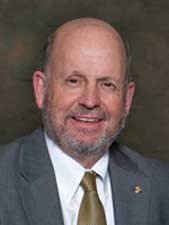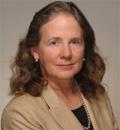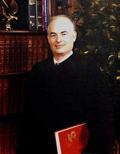
On July 13, 1994, President Bill Clinton appointed Hawkins to his seat on the court and the United States Senate confirmed the judge later that year. The judge opposed a vote regarding a hearing of the Savana Redding Advil Strip Search Case. In 2003, Savana attended eighth-grade at a public middle school in Safford, AZ and the strip-search case was brought by her mother. The case was reviewed by the United States Court of Appeals for the Ninth Circuit after a trial judge dismissed Savana's case against the school officials. Although the full appeals court agreed to a rehearing, Hawkins opposed the rehearing and wrote:
"I do not think it was unreasonable for school officials, acting in good faith, to conduct the search in an effort to obviate a potential threat to the health and safety of their students. I would find this search constitutional and would certainly forgive the Safford officials' mistake as reasonable. Unless we think that the Fourth Amendment gives greater protection to good test takers, there is only so much weight we can give to Redding's honor-student status."Judge Michael Daly Hawkins Listens to Barry Bonds Case
On Wednesday, February 13, 2013, the Ninth U.S. Circuit Court of Appeals listened to Barry Bonds' attorneys concerning whether the home run king should be exempt from his 2010 conviction for obstructing justice. According to an Associated Press article on willitsnews.com "Barry Bonds case: Appeals court weighs home run king's bid to set aside BALCO conviction," Judges Michael Daly Hawkins, Mary Schroeder and Mary Murguia heard Bonds' attorneys argued that their client did not impede justice when he testified to a federal grand jury examining the Bay Area Laboratory Cooperative steroids outrage.
The AP editorial reports that the judges did not disclose if the former San Francisco slugger would get a new trial for the obstruction of justice charge. However, Judge Hawkins questioned if Bonds could be indicted for obstruction of justice based on the evasive testimony he provided when he later clarified his response on the same issue. At one point, Hawkins asked assistant U.S. attorney Merry Chan, "How can that obstruct justice?" Chan explained to the judges that Bonds had a "corrupt intent" to deceived the grand jury investigating one of the worst steroids scandals in professional baseball history.
The AP column on willitsnews pointed out that a jury convicted Bonds in 2010 for obstruction of justice after he told the BALCO grand jury he never used performance-enhancing drugs. The jury convicted the athlete because he did not offer a direct answer to a question regarding whether his former personal trainer, Greg Anderson, had ever given him steroids. Bonds decided to dodge the question by rambling about how individuals saw him as a celebrity with a famous father.
According to the AP article, Bonds' appellate attorney, Dennis Riordan, told the Ninth Circuit to exempt his client from the conviction since the grand jury statement Bonds provided was not charged as a defined crime. Riordan argued that the government's charge was unclear and could not amount to obstruction of justice. The attorney told the judges, "We have a conviction here that literally ... would allow government to charge (that) you committed a crime in some way."
The AP editorial on willitsnews noted that the judges believe that Bonds' statement was intended to deceive the BALCO grand jury. Judge Mary Schroeder acknowledged that the jury found Bonds' testimony to be obstruction of justice. Schroeder also mentioned that the trial judge presiding over the BALCO grand jury overruled on the same argument presented by Riordan.
The AP column states that Bonds retired from Major League Baseball in 2007. He wants to be exempt from his felony conviction and his two years of probation sentence. Bonds has been monitored electronically at home while he awaits to be inducted into the Baseball Hall of Fame.




